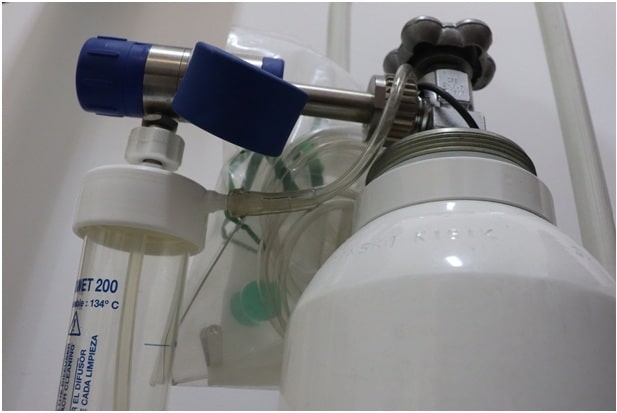A pulse oximeter is a small piece of equipment that a doctor or hospital slips on a patient’s finger. The unit uses a light source to transmit into the skin to determine the percentage of oxygen molecules being transported in the hemoglobin to the various cells and tissues. The small tool is becoming a tremendous advantage for healthcare providers with the current surge in patient loads among those who deem a considerable risk due to what has become a ‘pandemic’ running amuck in the country.
More people are choosing to purchase their own medical equipment, like pulse oximeters, see masimopersonalhealth.com and other sites like it for more information. They can monitor the oxygen they produce at home with their only need to call a doctor if these levels drop or symptoms become dire. The claim is that oximeters deliver accurate calculations at nearly 2 percent of oxygen saturation, 90 percent or higher. A downside is if the percentage falls off below 80 saturation, the reliability decreases significantly.

Table of Contents
Monitoring Your Health With A Pulse Oximeter
The claim is that the pulse oximeter is becoming used widely not only in the hospital setting or physician’s offices but also in people’s homes. People are beginning to take a more proactive approach to their wellness today, particularly with the health conditions faced by the world currently. In saying that, first aid kits are no longer the only must-have in a homeowner’s medicine cabinet. More sophisticated medical equipment is incorporated into private situations each day, with people monitoring themselves alongside the medical practitioner as a means to remain proactive.
In saying that, though clinically accepted on a broad spectrum, pulse oximetry is a determination of the percentage of hemoglobin that is saturated with oxygen in arterial blood. It notes to be an effective tool for the management of a variety of lung conditions inclusive of COPD or Chronic Obstructive Pulmonary Disease. It allows the medical provider to determine how the lungs are operating and, if necessary, set you up for a supplemental machine. The doctor will figure out the amount that you need. The practitioner can also use this device to know if hospitalization is warranted in cases of COPD.
There are multiple other conditions for which the oximeter can offer useful information. Take the link to learn how the device can be useful in medical circumstances. Some include:
- Anesthesiologists: monitors blood oxygen levels during/after sedation for surgeries.
- Sleep apnea: assessment to detect the times that someone stops breathing.
The devices have extensive use in clinics, hospitals, physician practices, and now in private homes. They have overall accuracy and boast excellent calculations regarding oxygen saturation levels—these note to be valuable tools, particularly in emergent conditions.
The Convenience Of Pulse Oximeter Medical Equipment
There is a wide range of pulse oximetry equipment on the market for which you can obtain what precisely will fit your specific needs. They are available in the online market, at various pharmacies in drug stores, and in multiple different medical supply shops.
You can get the standard that fits either the finger or the earlobe, but there are also wearable versions for the wrist. In this variety, the system tracks the blood oxygen level every minute of every day without fail. It has the potential of notifying your doctor or caregiver if the dip is too low.
For COPD specifically, this type of testing should not replace spirometry in diagnosing but rather act as a complement to the process and in turn, help management of care. It is also beneficial when the doctor is trying to determine your level of supplementation, meaning your home device will come in handy for monitoring. Regardless of where your percentage is, it would help if you never titrated without specific direction from the medical practitioner. In many situations, doctors will use arterial blood gas analysis, which deems the ‘gold standard’ of measurement when trying to determine the appropriate supplementation level.

Final Word
Pulse oximeter equipment is a user-friendly, noninvasive approach to get the precise measurement of blood oxygen saturation in your body, determine your lung function, see disease progression, and help the doctor assess how well treatment regimens are progressing. The claim is this is an excellent tool not only for those in the medical field but for anyone at home who wants to be proactive with their health regimen.
The suggestion is never to base any medical decisions solely on the calculations you receive from the oximeter as far as how your body feels. If the reading is in range, but you have troubling symptoms or are severely short of breath, seek emergency medical care right away, and contact your regular physician. Ultimately, our bodies will let us know when something is not right, and we need to pay attention to those signs.




